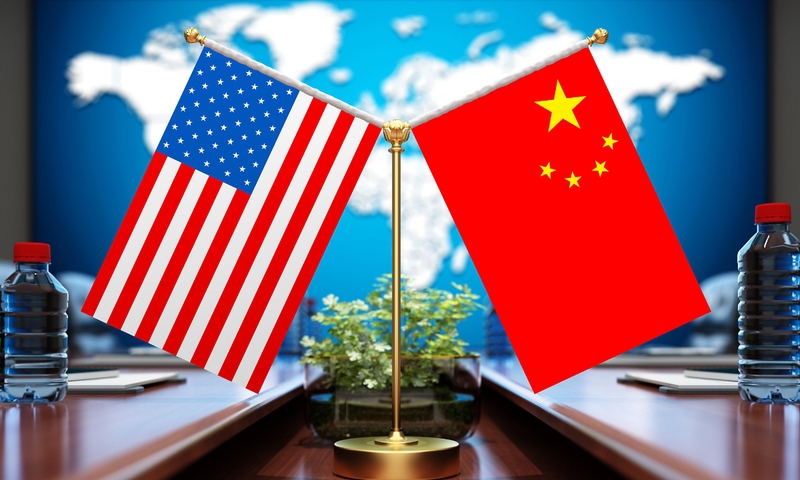
China US Photo:VCG
With more frequent high-level interactions between the US and China taking place, and a bipartisan US Senate delegation planning to vist China in the coming days, some Chinese experts said on Friday that whether US-China relations will truly warm up due to the recent communications and exchanges between officials of different levels and across various fields requires continued observation. This also shows that current US-China ties are still in an uncertain status, but positive factors are increasing, they noted.
In a press briefing on Thursday local time, the White House expressed its support for a planned visit by a bipartisan congressional delegation led by Senate Majority Leader Chuck Schumer to China, Japan and South Korea next week.
Asked about the upcoming trip, White House spokesperson Karine Jean-Pierre said that we support, certainly, their engagement in the region.
Schumer has repeatedly urged the US to take a harder line on China, and urged lawmakers earlier this year to begin new legislation aimed at addressing concerns about the world's second biggest economy, Reuters reported on Tuesday. The trip will follow visits by a series of Biden administration officials, including Commerce Secretary Gina Raimondo in August.
The Chinese Foreign Ministry said on Wednesday that China welcomes Schumer's visit to China, hoping that it will contribute to a more objective understanding of China in the US Congress, increase dialogue and communication between the legislatures of the two countries, and add positive factors to the growth of China-US relations.
I believe that both sides will make some progress in the legislative exchanges that have been troubling their relationship, as many of the restrictive measures in the US policy toward China originate from US legislation, Li Haidong, a professor at the China Foreign Affairs University, told the Global Times on Friday.
Therefore, close communication and exchanges between the top legislative bodies of the two countries can help avoid a situation where the foundational stability of the bilateral relationship is substantially undermined, Li said.
Schumer's trip to China will be the first congressional vist to the country in four years, which also reflects some new characteristics in the latest high-level interactions between the two countries, said some experts, who believe that the US Congress has been following in the steps of the Biden administration in enhancing interactions with China.
Not only will more US officials visit China for dialogue and exchanges, more Chinese officials will also make visits to the US to enhance communication, Wu Xinbo, director of the Center for American Studies at Fudan University, told the Global Times on Friday.
Chinese Foreign Minister Wang Yi is expected to visit Washington later this month to pave the way for a potential leaders' meeting during the upcoming APEC summit, US news outlet Foreign Policy reported on Tuesday, citing three US and East Asian diplomats familiar with the matter.
The Washington Post also reported on Thursday that the White House is making plans for a face-to-face meeting between US and Chinese top leaders in San Francisco next month as the two countries seek to stabilize troubled relations.
The Biden administration is releasing these messages to 'boost scores' on its diplomatic performance and to show its willingness to improve relations with China as a responsible major country, Li said. He noted that if such a meeting does not take place, Washington could exploit the narrative and shift the blame to Beijing.
Some Chinese experts said the recent adjustments of the Biden administration's China policy have been largely tactical.
They have strengthened communication and dialogue, aiming to address specific issues within the bilateral relationship, Wu said. However, the fundamental direction and design of his China policy remains unchanged.
That is, viewing China as the US' primary strategic competitor continues to be its main tone, and the US' policy framework of containing and pressuring China under the guise of competition remains intact, he noted.
On whether conditions are right for the meeting between the two heads of state, some experts said it depends on how much more effort the US makes, especially after China has clearly presented its concerns and requests to the US.
The first is the Taiwan question, whether it's adhering to the one-China principle and opposing Taiwan's 'independence' or it's just paying lip service: saying one thing and doing another, the US has to fulfill its promises, Wu said.
In the areas of trade and technology, the US needs to make some adjustments in its additional tariffs imposed on Chinese products and export controls on the Chinese companies, as well as lift some sanctions on over 1,000 Chinese entities, he said. Now it's up to how much the US is willing to do in order to gauge their sincerity.

